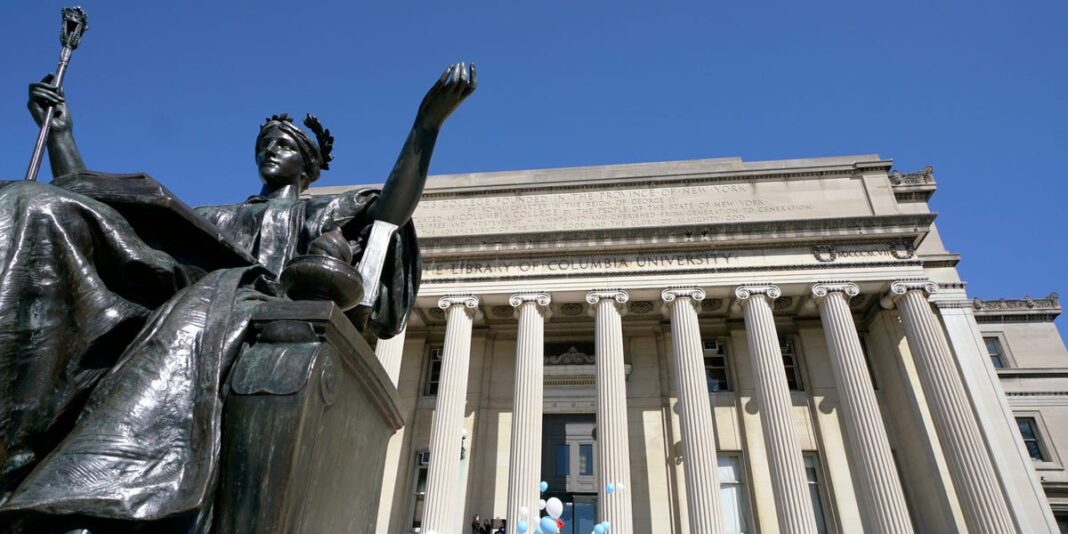- Columbia administrators quietly changed policies before suspending pro-Palestine student groups.
- A senior university executive confirmed the covert policy changes to the University Senate.
- The war between Israel and Hamas is a growing point of conflict on United States college campuses.
Columbia University Administrators covertly changed events policies before suspending two pro-Palestine student groups, according to the university government.
Gerald M. Rosberg, senior executive vice president of the university, informed the University Senate on Friday that university administrators had revised the policies without the knowledge of the senate, according to Columbia Spectator.
“I know I am going to be living with this for a long time to come,” Rosberg said at the meeting according to the student newspaper.
The war between Israel and Hamas has become a controversial topic on college campuses throughout the U.S. since Hamas’ October 7 attack inside Israel, which killed 1,200 people.
Israel responded with air attacks and a ground invasion in Gaza that have so far killed more than 10,000 Palestinians, thousands of whom are believed to be children, according to the Hamas-led Palestinian Health Ministry.
A growing pro-Palestinian activist movement at American schools and colleges has stoked controversy and has been covered extensively in the media. For instance, in California, a first grade teacher was suspended for giving students a lesson about the “genocide in Palestine.” At the University of Pennsylvania, the decision to host a Palestine Writes Literary Festival caused several mega-donors to threaten their support for the school.
According to Spectator, Columbia changed its events policy after student chapters of Students for Justice in Palestine and Jewish Voice for Peace protested on October 12.
Columbia ultimately suspended the university chapters of SJP and JVP on November 10 after the groups organized a walkout, which it says were in violation of the policies.
Jeanine D’Armiento, University Senate executive committee chair, said the policy change is an “inconsistency in the events and the rules” and that she is “not going to accept any explanation” that the communication of the policy change was made clear,” Spectator reported.
David Lurie, president of the Columbia chapter of the American Association of University Professors, said that administrators updating student group policies on their own was a “gross violation” of shared governance, according to Inside Higher Ed.
“What they’ve done is taken something that should be running through existing disciplinary channels that involve our right of appeal, that involve advisory boards, that include faculty and student representation, and eliminated all of those,” he told the outlet.
Columbia did not immediately return Insider’s request for comment Saturday, but a university spokesperson told Inside Higher Ed that the university sent the student groups “restatements” of the policy updates before the walkout that led to their suspension.
“[The groups’] compliance with [the procedures] started to slip, and the [groups’] advisers issued numerous warnings that clearly laid out that failure to respect the required processes would have consequences,” the spokesperson said.
Source link









